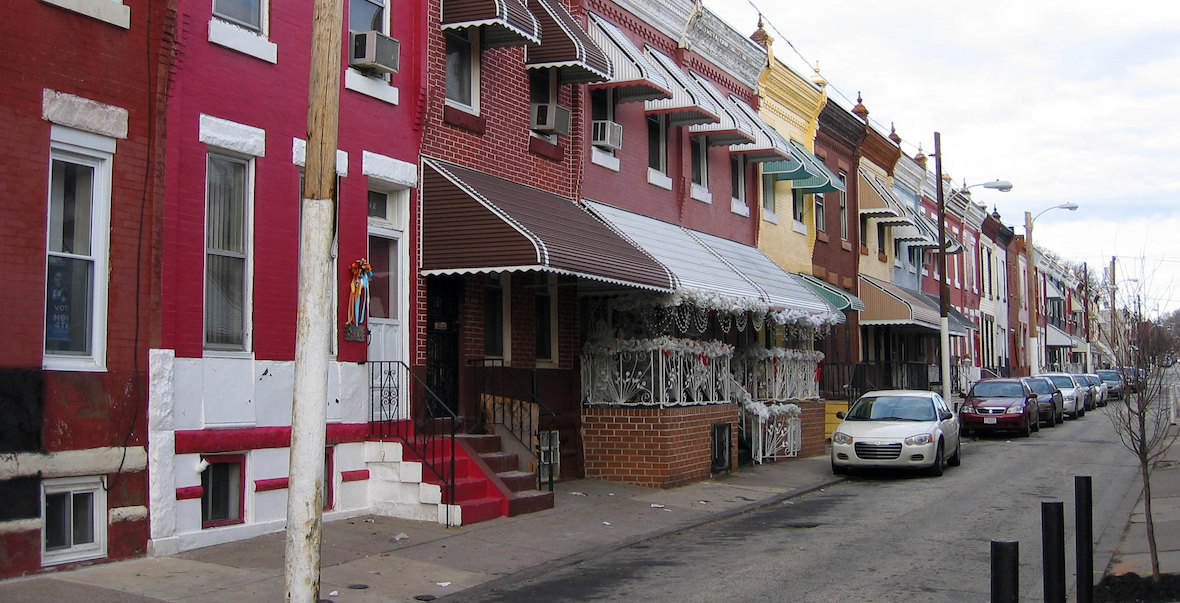Last month, President Biden released the Housing Supply Action Plan to “to ease the burden of housing costs over time, by boosting the supply of quality housing in every community.” The plan aims to close the nation’s housing shortfall in five years through the production of hundreds of thousands of new units and increased rental and down payment assistance.
In addition to the tools at the federal government’s disposal, such as financing and ensuring that government-owned properties go to owner occupants instead of large investors, the administration seeks to reward localities that have reformed zoning and land-use policies.
The entire plan, if enacted, would be transformational for a country faced with an affordable housing crisis.
We at Habitat for Humanity Philadelphia work toward our vision of a city where everyone has a decent place to live through our repair work for existing homeowners and by working alongside families to build and sell newly developed homes. We celebrate the administration’s plan and recognize that its bold and ambitious goals are needed to address the housing shortage. We also know that it does not offer immediate relief to the current untenable housing situation and must be considered in tandem with other policies.
There are steps that can be taken now at the local level to help thousands of homeowners and renters in our state.
Pennsylvania currently has upwards of $800 million sitting in its coffers from earned revenue, excessive rainy-day funds and the American Rescue Plan. We have the opportunity — the obligation — to use this unprecedented surplus to invest boldly in housing and support sound housing policy. That’s why Habitat applauds and urges support for three initiatives currently gaining momentum at the state level.
First, we applaud state Senator Vincent Hughes’ call to “Free the Funds” through an investment that includes a transformational Pennsylvania investment plan which is centered on housing as the foundation for education, public safety, health, and access to opportunity. We must seize this moment.
Additionally, we wholeheartedly support making funding available for critical home repairs in our state through the Whole-Home Repairs Act. We know that the most affordable home is the one a family already lives in. According to state Sen. Nikal Saval, “more than 280,000 housing units in Pennsylvania have moderate to severe physical inadequacies.”
If we are serious about addressing the affordable housing crisis, we must acknowledge that we cannot simply build our way out of it.
Soon to be considered in the Pennsylvania state legislature, the Whole-Home Repairs Act introduced by state Sen. Saval would provide up to $50,000 to eligible state residents for needed home repairs, pushing back on decades of disinvestment in local communities. Whole-Home Repairs would create a one-stop shop to make it simple for people to access funding for critical home repairs and weatherization. The Whole-Home Repairs Act is the first legislation of its kind in the nation and its bipartisan support is evidence that housing is not a political issue, but a human issue.
And lastly, in addition to Whole-Home Repairs, there is an opportunity in Harrisburg to raise the funding cap on the Pennsylvania Housing Affordability and Rehabilitation Enhancement Fund (PHARE). PHARE supports local housing, blight remediation, supportive services, homeownership counseling, and home purchase, helping more than 7,000 households in Pennsylvania’s 67 counties over the last decade.
A portion of Pennsylvania’s Realty Transfer Tax (RTT) revenue is dedicated to help fund PHARE, but that allocation is currently capped at $40 million — a limit that has been reached each year since 2019 thanks to the strength of the real estate market.
If the cap is removed, funding for PHARE through the RTT will increase. This year alone, projections indicate that more than $95 million could be invested into Pennsylvania housing if no cap existed. Currently, once the cap is reached on the RTT, the money is directed to the state’s general fund. At a time when the affordable housing crisis continues to rage, we cannot afford to simply keep the status quo. Lifting the cap on PHARE funding will help thousands of Pennsylvania residents remain safe, warm, and dry in their homes without raising taxes.
If we are serious about addressing the affordable housing crisis, we must acknowledge that we cannot simply build our way out of it. The Biden Housing Supply Action Plan is an encouraging framework, and these two policies can equip our state with the tools needed to make meaningful investment in resident’s lives.
Recently, current and future lawmakers won local primary elections. Many of these same individuals will have a say in how our state prioritizes housing. We call on every state representative and senator to vote in favor of these two policies and also call upon them to make an additional transformational investment into housing in the Commonwealth.
And we call on you to join us. Visit habitatphiladelphia.org/advocate to raise your voice so that more Pennsylvanians have a decent place to call home.
Corinne O’Connell is the Chief Executive Officer at Habitat for Humanity Philadelphia.
The Citizen welcomes guest commentary from community members who stipulate to the best of their ability that it is fact-based and non-defamatory.
![]()
RELATED POSTS ON HOUSING FROM THE CITIZEN
The Virus and the City: Keeping Parasitic Capital Away from Our Homes
Photo by Eli Pousson via Creative Commons.




